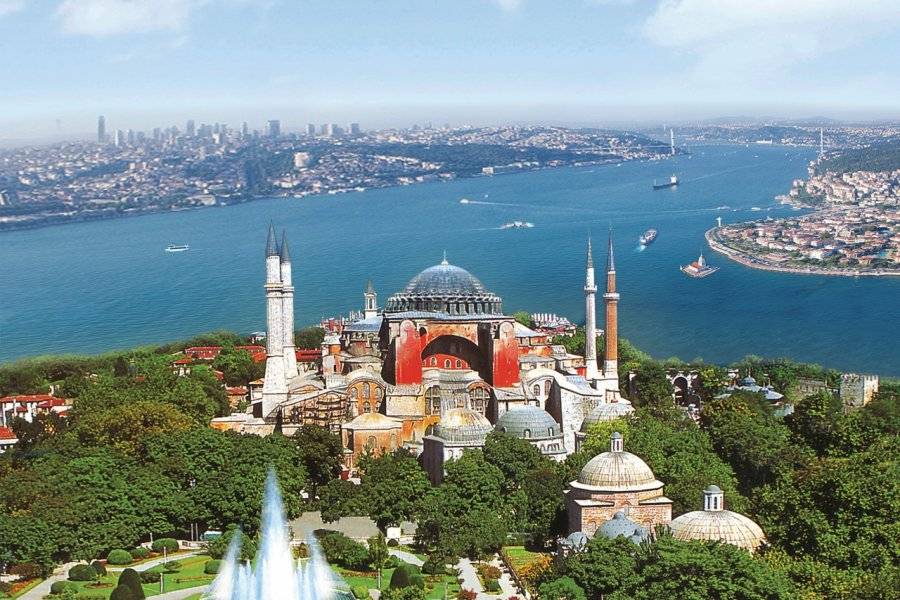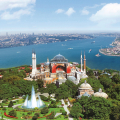House of God, architectural splendor, basilica turned mosque ... sainte-Sophie is at the heart of the stakes of power.
Opposite the Blue Mosque stands the Basilica of Saint Sophia, one of the glories of the Byzantine Empire, which for almost a thousand years was the greatest sanctuary in the Christian world, surpassed only by Saint Peter's in Rome in the 16th century. Dedicated to divine wisdom, it was the great work of the Emperor Justinian, but was transformed into a mosque after the city was taken by the Ottomans in 1453. The minarets and mausoleums they added lightened the heavy and massive appearance of the old basilica in the eyes of contemporaries. As you enter the nave, you are taken aback by the enormity of the building and the height of the dome, decorated with Koranic inscriptions, which rises to 56 m, the equivalent of an eighteen-story building. The most astonishing thing is that this dome, about 30 meters in diameter, was not supported by pillars, but by half-domes, an architectural prodigy that would later influence the Ottoman constructions of the great architect Sinan. Weakened by successive earthquakes, its structure was nevertheless strengthened by the addition of pillars and external buttresses. The construction of Hagia Sophia began in 532 and for five years employed more than 10,000 workers under the orders of the architects Isidore de Millet and Anthemios de Tralles. Materials arrived from all over the empire and they did not hesitate to bring from Ephesus the pillars of the Artemisia, one of the Seven Wonders of the World. When the Ottomans took over Saint Sophia, they had the image of Christ Pantocrator on the dome covered and replaced it with calligraphy. The mosaics were preserved and it was only in 1750 that they were covered with a whitewash in order to be more in harmony with the Koran which forbids images. They could have been destroyed, but the sultan of the time, aware of the importance of these works of art, was content with a cover-up. Thus one can admire today the superb Byzantine mosaics of the VIth century and the IXth, Xth and XIIth centuries (southern gallery). In 1934, Atatürk transforms the mosque into museum to destroy the symbols that Sainte-Sophie could represent. Before leaving the court, do not miss to admire the mausoleum of Selim II. Do not hesitate to take a night walk: the spectacle between Sainte-Sophie and the Blue Mosque is of an enchanting beauty. Since 2020, under the presidency of Recep Tayyıp Erdoğan, it has become a mosque again.
Did you know? This review was written by our professional authors.
Members' reviews on SAINT-SOPHIA (AYASOFYA CAMII)
The ratings and reviews below reflect the subjective opinions of members and not the opinion of The Little Witty.










Si vous n'êtes pas du matin, vous pouvez la visiter en fin d'après-midi, vers 16h il y avait un petit peu de monde mais pas de grande file d'attente.
Ne soyez pas étonnés, il y a souvent des échafaudages pour les travaux de restauration.
Sympa à visiter